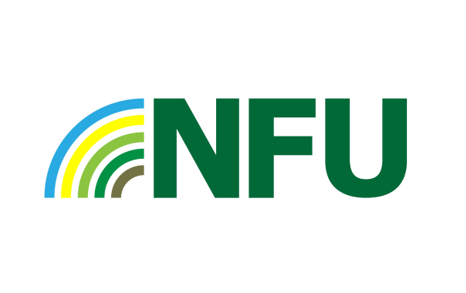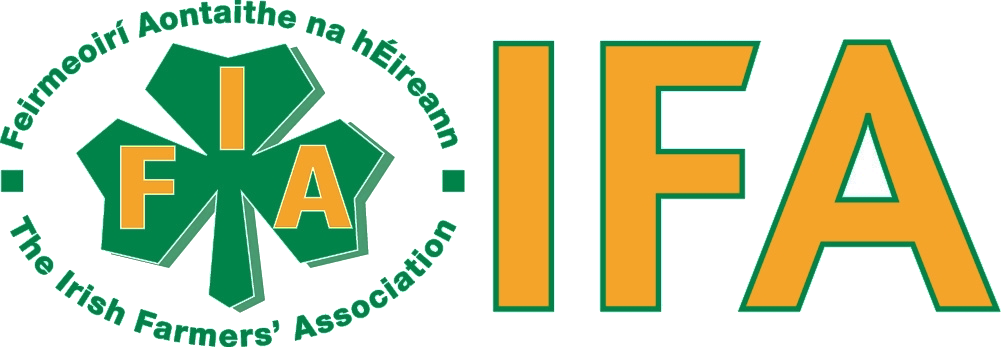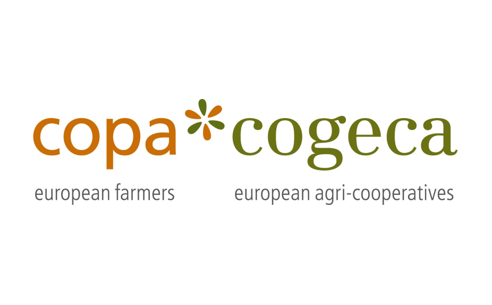Background
The National Farmers’ Union (NFU) represents farmers and growers in England and Wales, formed in 1908.
The NFU says its purpose is “to champion British agriculture and horticulture, to campaign for a stable and sustainable future for British farmers and to secure the best possible deal for our members.” The group has more than 55,000 members.1“About us,” National Farmers Union. Archived November 9, 2020. Archive.fo URL: https://archive.fo/3r8z2
The group has set a target of ensuring all agriculture across England and Wales has net-zero greenhouse gas emissions by 2040. Its approach has been criticised for failing to address emissions from meat consumption.2Roger Harrabin. “UK farms plan for going ‘carbon neutral,” BBC News, September 10, 2019. Archived November 9, 2020. Archive.fo URL: https://archive.fo/UvolM
Stance on Climate Change
In January 2019, the NFU announced its aim to have a “net zero” contribution to “climate change across the whole of agricultural production by 2040.” The group released a report on how it hopes to achieve this goal, alongside a “call for support from government, industry and other key groups to work in partnership to help deliver this challenging ambition.”3“‘Net Zero’ agriculture,” National Farmers Union. Archived November 9, 2020. Archive.fo URL: https://archive.fo/ZpYkT 4“Achieving Net Zero – Farming’s 2040 Goal,” National Farmers Union. Archived November 9, 2020. Archived .pdf on file at DeSmog. 5“Achieving net zero – meeting the climate change challenge,” National Farmers Union. Archived November 9, 2020. Archive.fo URL: https://archive.fo/Xao2M
NFU President Minette Batters said: “NFU believes that the agricultural sector is very much part of the solution to decarbonising the UK economy” and says the group is working on introducing policy incentives for farmers and growers.6“Achieving Net Zero – Farming’s 2040 Goal,” National Farmers Union. Archived November 9, 2020. Archived .pdf on file at DeSmog.
The NFU’s target for reaching net-zero emissions relies up three themes:7“Achieving Net Zero – Farming’s 2040 Goal,” National Farmers Union. Archived November 9, 2020. Archived .pdf on file at DeSmog.
The first is by “boosting productivity and reducing emissions” which includes encouraging farmers to use precision agriculture techniques for crops “to deliver nutrients and crop protection more efficiently”. Within this, it also suggests gene editing “for disease resistance to improve health and productivity of crops and livestock and reduce emissions”. It also highlights measures such as controlled fertilizer release, using feed additives for ruminant livestock, loosening compacted soils and preventing soil compaction and implementing energy efficiency measures.8“Achieving Net Zero – Farming’s 2040 Goal,” National Farmers Union. Archived November 9, 2020. Archived .pdf on file at DeSmog.
Read more: Digital and Precision Agriculture – Criticisms and Concerns
The NFU also encourages farmers to adopt carbon storage techniques by “improving land management and changing land use to capture more carbon” — key elements of regenerative agriculture. This includes growing bigger hedgerows and planting more woodland. The report also suggests farmers can enhance soil carbon storage, and asks for support from the Department for Environment, Food and Rural Affairs (Defra) to develop a “network of demonstration farms and the development of a mechanism for reward payments.”9“Achieving Net Zero – Farming’s 2040 Goal,” National Farmers Union. Archived November 9, 2020. Archived .pdf on file at DeSmog.
Read more: Regenerative Agriculture – Criticisms and Concerns
The NFU’s third pillar for achieving the goal of net zero emissions is encouraging the production of bioenergy and the use of bio-materials. The report says: “Boosting renewable energy and the bioeconomy to displace greenhouse gas emissions from fossil fuels and to create GHG [greenhouse gas] removal through photosynthesis and carbon capture is a key part of the NFU ambition for achieving net zero.” Critics say that bioenergy production increases competition for land, and uses land which is needed for carbon storage and food production.10“Achieving Net Zero – Farming’s 2040 Goal,” National Farmers Union. Archived November 9, 2020. Archived .pdf on file at DeSmog. 11Andrew Steer and Craig Hanson. “Biofuels are not a green alternative to fossil fuels,” The Guardian, January 29, 2015. Archived November 9, 2020. Archive.fo URL: https://archive.fo/IDHsN
The NFU supports Crop Production Magazine’s Climate Change Champions initiative to reward farmers making changes to be net-zero. It is sponsored by BASF, BKT, CF Fertilisers, Fendt, Pöttinger, Interagro and KWS.12Tom Allen-Stevens. “Step forward with climate change solutions, says NFU,” Crop Production Magazine, December 10, 2019. Archived November 9, 2020. Archive.fo URL: https://archive.fo/GRuNt
In 2009, the NFU partnered with the CLA, a membership organisation for landowners, to launch the Campaign for the Farmed Environment (CFE), now named Championing the Farmed Environment. The CFE produces guidance “to support farmers in delivering for the environment”. It is supported by a number of major agricultural unions and government bodies including Defra, the Environment Agency, and The Woodland Trust.13“Our history,” Campaign for the Farmed Environment. Archived November 9, 2020. Archive.fo URL: https://archive.fo/HiHFs 14“What we do,” Campaign for the Farmed Environment. Archived November 9, 2020. Archive.fo URL: https://archive.fo/Kzava
Defending meat production
In November 2018, the NFU released a statement responding to a Committee on Climate Change’s report on changes in land use to reduce greenhouse gas emissions. The union said that reducing livestock numbers is not part of the NFU’s policy for reducing emissions, and said: “We are disappointed to see the Committee on Climate Change include that recommendation in its report. The report simply does not recognise the environmental benefits grass-fed beef and sheep production brings to the UK.”15“NFU response to Committee on Climate Change report,” National Farmers Union. Archived November 9, 2020. Archive.fo URL: https://archive.fo/aWqQR
The report by the Committee on Climate Change, an independent government advisory body, says that people need to cut their beef, lamb and dairy consumption by 20% if the UK is going to be able to meet its net-zero emissions by 2050 target.16Jasmine Anderson. “Cut red meat and dairy consumption by 20% to reduce climate change, experts urge,” iNews, January 23, 2020. Archived November 9, 2020. Archive.fo URL: https://archive.fo/atsvM
In a document called “Climate friendly farming. The facts about British meat” the NFU argues that it is not a question of whether to eat meat or not, but rather considering “where the livestock was farmed and the environmental and welfare standards of where it was produced.”17“Climate friendly farming: the facts about British meat,” National Farmers Union. Archived November 9, 2020. Archived .pdf on file at DeSmog.
The document says that UK beef production is not driving deforestation in other parts of the world (a criticism raised by some environmental groups) because “87% of UK beef is produced using predominantly forage-based diets, with only a very small amount of soya in rearing diets.” It also states that greenhouse gas emissions from beef production in the UK are about half of the global average.18Emily Beament. “Meat produced in UK causing deforestation,” The Ecologist, February 19, 2020. Archived November 9, 2020. Archive.fo URL: https://archive.fo/DMG9J
In response to a Guardian article discussing 18 arguments for adopting a meat-free diet, NFU Deputy President Stuart Roberts says that although diet has a part to play in climate change, “Cutting out meat is not going to solve the climate crisis” and argues that decisions “need to be based on production systems – not the product itself.”19Damian Carrington. “Why you should go animal-free: 18 arguments for eating meat debunked,” The Guardian, June 19, 2020. Archived November 9, 2020. Archive.fo URL: https://archive.fo/rcq9R 20“NFU writes to The Guardian about eating meat article,” National Farmers Union. Archived November 9, 2020. Archive.fo URL: https://archive.fo/I6IxJ
The NFU’s report on “Climate friendly farming” about UK meat production also says that reductions in greenhouse gas emissions can come from “using better genetics and making further improvements to animal welfare”. The report also argues that 65% of UK farmland could not be used for growing crops to feed people, and it is only appropriate for growing grass for animals to eat.21“Climate friendly farming: the facts about British meat,” National Farmers Union. Archived November 9, 2020. Archived .pdf on file at DeSmog.
In November 2019 the NFU invited 40 university delegates to its office in London to hear from speakers about British meat production’s role in the climate crisis. The NFU says the “take-home message” for the attendees was that “Sourcing British, climate-friendly beef and lamb can play an important role in tackling the climate crisis”.22John Swire. “British red meat production is part of solution to climate crisis, universities hear,” Farm Business. Archived November 9, 2020. Archive.fo URL: https://archive.fo/DhXly
“The world is crying out for a leader in sustainable food production” according to NFU President Minette Batters, “and British farmers are ready to take this opportunity.” Batters said that British farmers are “already producing some of the most climate-friendly beef and lamb in the world,” and urged the university delegates attending to not question whether or not meat should be served and instead ask “where has it been produced, and to what environmental and animal welfare standards?”23John Swire. “British red meat production is part of solution to climate crisis, universities hear,” Farm Business. Archived November 9, 2020. Archive.fo URL: https://archive.fo/DhXly
Friends of the Earth campaigner Guy Shrubsole told the BBC in 2019 that he was astonished the NFU’s plan for achieving net-zero didn’t include eating less red meat, saying: “Eating less but better meat would free up much more land for woodlands and agroforestry. But it seems the NFU is still not prepared to contemplate significant land use change, despite the Committee on Climate Change recommending this as being vital.”24Roger Harrabin. “UK farms plan for going ‘carbon neutral,” BBC News, September 10, 2019. Archived November 9, 2020. Archive.fo URL: https://archive.fo/UvolM
In August 2021, the NFU responded to comments made by Ethan Brown, the founder and CEO of plant-based food manufacturer Beyond Meat, about the idea of taxing meat products. Brown said that the idea of a “Pigouvian tax” on products “high in externalities” like meat was “an interesting one”. In response, the NFU claimed that “When people buy British meat they are buying sustainable, local food, produced in areas where it is difficult to grow other foods” and that “The same cannot always be said for some highly processed meat alternatives”.25Josh Barrie. “Farmers respond to vegan food boss who suggested meat tax would be a good idea,” iNews, August 2, 2021. Archived September 20, 2021. Archive.fo URL: https://archive.fo/W9yEL 26Jonathan Josephs. “Beyond Meat boss: Tax on negative impacts ‘does appeal’,” BBC News, August 2, 2021. Archived September 1, 2021. Archive.fo URL: https://archive.fo/rodVj
The NFU spokesperson added: “People should be reassured that if they want to enjoy meat products and at the same time reduce their carbon footprint – they can. In the UK, greenhouse gas emissions from UK beef production are less than half the global average.” The spokesperson also claimed that “British farmers are leading the way in climate-friendly food” and are “working towards net zero food production by 2040, So you can eat healthily and more sustainably by eating balanced and choosing British.”27Josh Barrie. “Farmers respond to vegan food boss who suggested meat tax would be a good idea,” iNews, August 2, 2021. Archived September 20, 2021. Archive.fo URL: https://archive.fo/W9yEL
Role in Pesticides Controversy
In 2017 the NFU, through it’s Brussels affiliate the British Agricultural Bureau, lobbied the EU for the use of glyphosate to be re-approved. A letter sent to President of the European Commission, Jean-Claude Juncker, the Agriculture and Rural Development Commissioner, Phil Hogan, and the Health and Safety Commissioner, Vytenis Andriukaitis, states that UK farmers are watching the debate on re-approving the use of glyphosate with “mounting concern” and that the UK farming unions “firmly believe that the EU’s science-based decision making process should be upheld and glyphosate reauthorised for the maximum period possible.”28“Letter to Jean-Claude Juncker – 11/3/2017,” British Agriculture Bureau. Archived November 9, 2020. Archived .pdf on file at DeSmog. 29“UK farming unions letter on glyphosate,” National Farmers Union. Archived November 9, 2020. Archive.fo URL: https://archive.fo/3tcXq
Glyphosate is the world’s most widely used weed killer which the International Agency for Research on Cancer said in 2015 was “probably carcinogenic to humans” but was re-approved for use by the EU in 2017. In January 2020, the US Environmental Protection Agency (EPA) released a statement that said the EPA has concluded that “there are no risks of concern to human health when glyphosate is used according to the label and that it is not a carcinogen.”30“Glyphosate,” Pesticide Action Network. Archived November 9, 2020. Archive.fo URL: https://archive.fo/AparD 31Arthur Neslen. “Controversial glyphosate weedkiller wins new five-year lease in Europe,” The Guardian, November 27, 2020. Archived November 9, 2020. Archive.fo URL: https://archive.fo/ivFY7 32 “EPA Finalises Glyphosate Mitigation,” US Environmental Protection Agency, January 30. 2020. Archived November 9, 2020. Archive.fo URL: https://archive.fo/iyvPB
In its 2017 letter, the NFU also argued that glyphosate is an “essential tool” for farmers as it “allows conservation agriculture to take place.” The group argues that without glyphosate farmers wouldn’t be able to plant cover crops which “improve soil structure and drainage as well as reduce soil erosion”. The letter says: “This form of conservation agriculture requires less work with machinery and allows farmers to adopt practices such as minimum or zero tillage, thus helping reduce greenhouse gas emissions.”33“Letter to Jean-Claude Juncker – 11/3/2017,” British Agriculture Bureau. Archived November 9, 2020. Archived .pdf on file at DeSmog.
The NFU Vice President Guy Smith argues that glyphosate use cuts greenhouse gas emissions “by reducing the need for ploughing” as well as reducing the need for other herbicides. The use of glyphosate was re-approved by the European Commission for five years in November 2017.34“Glyphosate decision must be based on science and evidence, not politics, says NFU,” National Farmers Union. Archived November 9, 2020. Archive.fo URL: https://archive.fo/sWh53 35“Glyphosate decision welcome news, NFU says,” National Farmers Union. Archived November 9, 2020. Archive.fo URL: https://archive.fo/S0Pno
In 2013, the NFU supported a legal challenge by Syngenta after the European Commission put a ban on a number of neonicotinoid pesticides, including thiamethoxam, distributed by Syngenta as Cruiser. In 2015, the Union secured the emergency use of the pesticide. In 2017, the NFU promoted a Syngenta campaign which urged farmers to use drift reduction technology to reduce spray drift when applying pesticides.36Philip Case. “NFU backs Syngenta’s EU neonic legal challenge,” Farmers Weekly, November 21, 2013. Archived November 9, 2020. Archive.fo URL: https://archive.fo/SpneG 37“Neonics emergency use application approved,” National Farmers Union. Archived November 9, 2020. Archive.fo URL: https://archive.fo/MHkm2 38“Syngenta campaign aims to reduce pesticide product drift,” National Farmers Union. Archived November 9, 2020. Archive.fo URL: https://archive.fo/M8xe1
A joint report from 2014 by UK’s Crop Protection Association, the National Farmers’ Union (NFU), and the Agricultural Industries Confederation (AIC), claimed that over-regulation of pesticides was “starting to affect our ability to grow crops now and in the immediate future” which “stifles, rather than embraces, progressive innovation”.39“Healthy Harvest – the impact of losing plant protection products on UK food,” Crop Protection Association, National Farmers Union and Agricultural Industries Confederation. Archived November 9, 2020. Archived .pdf on file at DeSmog.
In 2020, the NFU legally supported an appeal by Bayer against the European Union’s ban on the outdoor use of neonicotinoids.40Philip Case. “Bayer and NFU battling to overturn neonicotinoids ban,” Farmers Weekly, June 4, 2020. Archived August 12, 2020. Archive.fo URL: http://archive.fo/RwhG9
Lobbying
In the EU, the NFU is represented by the British Agricultural Bureau, the “only UK farming lobby to have a permanent base in Brussels.” The NFU states on its website that it gives farmers “political representation at [a] European, national and local level”.41“British Agriculture Bureau,” British Chamber of Commerce, EU and Belgium. Archived November 9, 2020. Archive.fo URL: https://archive.fo/Jly72
It also discloses that the NFU is active in Westminster, saying:42“Lobbying and representation,” National Farmers Union. Archived November 9, 2020. Archive.fo URL: https://archive.fo/ZqHaq
- “The NFU’s Government and Parliamentary Affairs operation represents and promotes the views of the NFU in London to a wide range of stakeholders.”
- “Monitoring political developments which affect the farming and growing industries.”
- “Influencing the political agenda through meetings, briefings and legislative amendments.”
- “Lobbying Parliament in line with the NFU’s communications strategy.”43“Lobbying and representation,” National Farmers Union. Archived November 9, 2020. Archive.fo URL: https://archive.fo/ZqHaq
And in Brussels, its lobbying includes:44“Lobbying and representation,” National Farmers Union. Archived November 9, 2020. Archive.fo URL: https://archive.fo/ZqHaq
- “Identifying European proposals that will impact on UK agriculture years before they become law and shaping them for the benefit of our members.”
- “Working closely with high level contacts in the European Commission. EU governments, think tanks and other stakeholder groups.”
- “Advising UK MEPs how to amend EU policy to support British agriculture.”
- “The NFU is an influential member of COPA, the European farmers’ organisation, which represents over 13 million European farmers.”45“Lobbying and representation,” National Farmers Union. Archived November 9, 2020. Archive.fo URL: https://archive.fo/ZqHaq
A 2016 report by the Ethical Consumer Research Association, titled “Understanding the NFU an English Agribusiness Lobby Group,” described that the Union, for environmental campaigners particularly, has “developed a reputation of having hardened into an anti-environmental, free-market lobby group.”46“Understanding the NFU – an English agribusiness lobby group,” Ethical Consumer Researcher Association. Archived November 9, 2020. Archived .pdf on file at DeSmog.
The report also referenced a 2013 Guardian article by author and environmentalist George Monbiot who wrote, “Is there any organisation as selfish, grasping and antisocial as the National Farmers’ Union? Is there any organisation, except the banks, that secures so much public money for its members while offering so little in return?”47George Monbiot. “The National Farmers’ Union secures so much public cash yet gives nothing back,” The Guardian, July 8, 2013. Archived November 9, 2020. Archive.fo URL: https://archive.fo/PIfwJ
The ECRA states that “although there is a lot of anecdotal concern in our interviews and elsewhere that it [the NFU] may have ‘captured Defra [The Department of Environment, Food and Rural Affairs]’, the evidence seems to show that, though their influence is huge, full capture is not yet complete.”48“Understanding the NFU – an English agribusiness lobby group,” Ethical Consumer Researcher Association. Archived November 9, 2020. Archived .pdf on file at DeSmog.
During the first three months of 2020 the NFU met with Defra ministers, including 15 meetings with George Eustice, UK Secretary of State for Environment, Food and Rural Affairs, as well as a meeting with Zac Goldsmith, Minister of State for Pacific and the Environment, to discuss the NFU’s “rally at the QE2 centre, COP26 [UN climate conference] and climate change”, according to transparency data published by Defra.49“Ministerial meetings, January to March 2020,” DEFRA, July 30, 2020. Archived November 9, 2020. Archive.fo URL: https://archive.fo/PIfwJ
NFU president Minette Batters reportedly had a private telephone meeting with more than 30 MPs including Owen Paterson (the MP for North Shropshire who has links to groups that spread disinformation on climate change including the Global Warming Policy Foundation, Heritage Foundation, and Competitive Enterprise Institute) to discuss the impact coronavirus is having on the farming industry.50James Pugh. “Covid-19 impacts on farming industry discussed in telephone meeting,” Shropshire Star, April 16, 2020. Archived November 9, 2020. Archive.fo URL: https://archive.fo/waDUO
Funding
The NFU’s annual report for 2019 says that members’ subscriptions and related income was £33.1 million.51“Annual Review 2019,” National Farmers Union. Archived November 9, 2020. Archived .pdf on file at DeSmog.
Affiliations
The NFU is divided into regions and NFU Cymru covers Wales.
The NFU is listed as a Key Partner in a BASF booklet, “Working for Sustainable Farming in Europe.” The Union has also visited Rawcliffe Bridge and The Grange, two family farms that have partnerships with BASF. In 2019, BASF’s Agricultural Sustainability Manager, Mike Green, delivered a speech at the NFU’s 2019 national conference.52“Working for sustainable farming in Europe,” The Farm Network, a BASF Partnership. Archived .pdf on file at DeSmog. 53“Key influencers, schools and general public,” BASF. Archived November 9, 2020. Archive.fo URL: https://archive.fo/GRR49 54“It was great to see our very own @MikeGreenSustAg at #NFU19 this week talking about how the production and delivery of environmental services could go hand in hand #AgBalance #NaturalCapital,” Tweet by @BASFcropUK, February 22, 2019. Retrieved from Twitter.com. Archived .png on file at DeSmog.
In 2013, the NFU supported a legal challenge by Syngenta to the European Commission’s ban on neonicotinoid pesticides, and has promoted the company’s campaigns.55Philip Case. “NFU backs Syngenta’s EU neonic legal challenge,” Farmers Weekly, November 21, 2013. Archived November 9, 2020. Archive.fo URL: https://archive.fo/SpneG 56“Syngenta campaign aims to reduce pesticide product drift,” National Farmers Union. Archived November 9, 2020. Archive.fo URL: https://archive.fo/M8xe1
In 2020, the NFU supported an appeal by Bayer against the European Union’s ban on the outdoor use of neonicotinoids.57Philip Case. “Bayer and NFU battling to overturn neonicotinoids ban,” Farmers Weekly, June 4, 2020. Archived August 12, 2020. Archive.fo URL: http://archive.fo/RwhG9
The British Agriculture Bureau (BAB) is the NFU’s office in Brussels. The group also represents NFU Cymru, NFU Scotland, the Ulster Farmers Union and the National Pig Association. In the financial year November 2018 to October 2019, BAB spent between €600,00 and €699,999 in lobbying costs, according to LobbyFacts.eu, and is affiliated with COPA-COGECA. During the coronavirus pandemic, BAB expressed scepticism towards the EU’s green ambitions and climate neutrality goals.58“An introduction to the NFUs in Brussels office,” National Farmers Union. Archived November 9, 2020. Archive.fo URL: https://archive.fo/kKcDF 59“British Agriculture Bureau,” LobbyFactsEU. Archived November 9, 2020. Archive.fo URL: https://archive.fo/eVrru 60“British Agriculture Bureau update,” Farming Life, June 1, 2020. Archived November 9, 2020. Archive.fo URL: https://archive.fo/FJUFa
The NFU is listed as a member of farmer’s union COPA, which is half of the EU group COPA-COGECA.61“COPA’s member organisations,” COPA-COGECA. Archived November 9, 2020. Archive.fo URL: https://archive.fo/731eC
The NFU is among a number of industry groups that pay the PR firm Front Foot Communication to run the All-Party Parliamentary Group (APPG) on Science and Technology in Agriculture.62Barney McIntyre and Guy Taylor, “The fight over rewilding,” Tortoise, January 8, 2023. Archived June 26, 2024. Archive URL: https://archive.ph/kGmfr Members of Parliament and peers which are part of this group promote “sustainable intensification” of agriculture, arguing it will promote higher yields while reducing environmental impacts. Campaigners worry that this is a way of preserving industrial farming, using high inputs of pesticides and fertilisers. Since 2016, Front Foot Communications has paid £102,006 in benefits in kind to members of the APPG.
Other Resources
Resources
- 1“About us,” National Farmers Union. Archived November 9, 2020. Archive.fo URL: https://archive.fo/3r8z2
- 2Roger Harrabin. “UK farms plan for going ‘carbon neutral,” BBC News, September 10, 2019. Archived November 9, 2020. Archive.fo URL: https://archive.fo/UvolM
- 3“‘Net Zero’ agriculture,” National Farmers Union. Archived November 9, 2020. Archive.fo URL: https://archive.fo/ZpYkT
- 4“Achieving Net Zero – Farming’s 2040 Goal,” National Farmers Union. Archived November 9, 2020. Archived .pdf on file at DeSmog.
- 5“Achieving net zero – meeting the climate change challenge,” National Farmers Union. Archived November 9, 2020. Archive.fo URL: https://archive.fo/Xao2M
- 6“Achieving Net Zero – Farming’s 2040 Goal,” National Farmers Union. Archived November 9, 2020. Archived .pdf on file at DeSmog.
- 7“Achieving Net Zero – Farming’s 2040 Goal,” National Farmers Union. Archived November 9, 2020. Archived .pdf on file at DeSmog.
- 8“Achieving Net Zero – Farming’s 2040 Goal,” National Farmers Union. Archived November 9, 2020. Archived .pdf on file at DeSmog.
- 9“Achieving Net Zero – Farming’s 2040 Goal,” National Farmers Union. Archived November 9, 2020. Archived .pdf on file at DeSmog.
- 10“Achieving Net Zero – Farming’s 2040 Goal,” National Farmers Union. Archived November 9, 2020. Archived .pdf on file at DeSmog.
- 11Andrew Steer and Craig Hanson. “Biofuels are not a green alternative to fossil fuels,” The Guardian, January 29, 2015. Archived November 9, 2020. Archive.fo URL: https://archive.fo/IDHsN
- 12Tom Allen-Stevens. “Step forward with climate change solutions, says NFU,” Crop Production Magazine, December 10, 2019. Archived November 9, 2020. Archive.fo URL: https://archive.fo/GRuNt
- 13“Our history,” Campaign for the Farmed Environment. Archived November 9, 2020. Archive.fo URL: https://archive.fo/HiHFs
- 14“What we do,” Campaign for the Farmed Environment. Archived November 9, 2020. Archive.fo URL: https://archive.fo/Kzava
- 15“NFU response to Committee on Climate Change report,” National Farmers Union. Archived November 9, 2020. Archive.fo URL: https://archive.fo/aWqQR
- 16Jasmine Anderson. “Cut red meat and dairy consumption by 20% to reduce climate change, experts urge,” iNews, January 23, 2020. Archived November 9, 2020. Archive.fo URL: https://archive.fo/atsvM
- 17“Climate friendly farming: the facts about British meat,” National Farmers Union. Archived November 9, 2020. Archived .pdf on file at DeSmog.
- 18Emily Beament. “Meat produced in UK causing deforestation,” The Ecologist, February 19, 2020. Archived November 9, 2020. Archive.fo URL: https://archive.fo/DMG9J
- 19Damian Carrington. “Why you should go animal-free: 18 arguments for eating meat debunked,” The Guardian, June 19, 2020. Archived November 9, 2020. Archive.fo URL: https://archive.fo/rcq9R
- 20“NFU writes to The Guardian about eating meat article,” National Farmers Union. Archived November 9, 2020. Archive.fo URL: https://archive.fo/I6IxJ
- 21“Climate friendly farming: the facts about British meat,” National Farmers Union. Archived November 9, 2020. Archived .pdf on file at DeSmog.
- 22John Swire. “British red meat production is part of solution to climate crisis, universities hear,” Farm Business. Archived November 9, 2020. Archive.fo URL: https://archive.fo/DhXly
- 23John Swire. “British red meat production is part of solution to climate crisis, universities hear,” Farm Business. Archived November 9, 2020. Archive.fo URL: https://archive.fo/DhXly
- 24Roger Harrabin. “UK farms plan for going ‘carbon neutral,” BBC News, September 10, 2019. Archived November 9, 2020. Archive.fo URL: https://archive.fo/UvolM
- 25Josh Barrie. “Farmers respond to vegan food boss who suggested meat tax would be a good idea,” iNews, August 2, 2021. Archived September 20, 2021. Archive.fo URL: https://archive.fo/W9yEL
- 26Jonathan Josephs. “Beyond Meat boss: Tax on negative impacts ‘does appeal’,” BBC News, August 2, 2021. Archived September 1, 2021. Archive.fo URL: https://archive.fo/rodVj
- 27Josh Barrie. “Farmers respond to vegan food boss who suggested meat tax would be a good idea,” iNews, August 2, 2021. Archived September 20, 2021. Archive.fo URL: https://archive.fo/W9yEL
- 28“Letter to Jean-Claude Juncker – 11/3/2017,” British Agriculture Bureau. Archived November 9, 2020. Archived .pdf on file at DeSmog.
- 29“UK farming unions letter on glyphosate,” National Farmers Union. Archived November 9, 2020. Archive.fo URL: https://archive.fo/3tcXq
- 30“Glyphosate,” Pesticide Action Network. Archived November 9, 2020. Archive.fo URL: https://archive.fo/AparD
- 31Arthur Neslen. “Controversial glyphosate weedkiller wins new five-year lease in Europe,” The Guardian, November 27, 2020. Archived November 9, 2020. Archive.fo URL: https://archive.fo/ivFY7
- 32“EPA Finalises Glyphosate Mitigation,” US Environmental Protection Agency, January 30. 2020. Archived November 9, 2020. Archive.fo URL: https://archive.fo/iyvPB
- 33“Letter to Jean-Claude Juncker – 11/3/2017,” British Agriculture Bureau. Archived November 9, 2020. Archived .pdf on file at DeSmog.
- 34“Glyphosate decision must be based on science and evidence, not politics, says NFU,” National Farmers Union. Archived November 9, 2020. Archive.fo URL: https://archive.fo/sWh53
- 35“Glyphosate decision welcome news, NFU says,” National Farmers Union. Archived November 9, 2020. Archive.fo URL: https://archive.fo/S0Pno
- 36Philip Case. “NFU backs Syngenta’s EU neonic legal challenge,” Farmers Weekly, November 21, 2013. Archived November 9, 2020. Archive.fo URL: https://archive.fo/SpneG
- 37“Neonics emergency use application approved,” National Farmers Union. Archived November 9, 2020. Archive.fo URL: https://archive.fo/MHkm2
- 38“Syngenta campaign aims to reduce pesticide product drift,” National Farmers Union. Archived November 9, 2020. Archive.fo URL: https://archive.fo/M8xe1
- 39“Healthy Harvest – the impact of losing plant protection products on UK food,” Crop Protection Association, National Farmers Union and Agricultural Industries Confederation. Archived November 9, 2020. Archived .pdf on file at DeSmog.
- 40Philip Case. “Bayer and NFU battling to overturn neonicotinoids ban,” Farmers Weekly, June 4, 2020. Archived August 12, 2020. Archive.fo URL: http://archive.fo/RwhG9
- 41“British Agriculture Bureau,” British Chamber of Commerce, EU and Belgium. Archived November 9, 2020. Archive.fo URL: https://archive.fo/Jly72
- 42“Lobbying and representation,” National Farmers Union. Archived November 9, 2020. Archive.fo URL: https://archive.fo/ZqHaq
- 43“Lobbying and representation,” National Farmers Union. Archived November 9, 2020. Archive.fo URL: https://archive.fo/ZqHaq
- 44“Lobbying and representation,” National Farmers Union. Archived November 9, 2020. Archive.fo URL: https://archive.fo/ZqHaq
- 45“Lobbying and representation,” National Farmers Union. Archived November 9, 2020. Archive.fo URL: https://archive.fo/ZqHaq
- 46“Understanding the NFU – an English agribusiness lobby group,” Ethical Consumer Researcher Association. Archived November 9, 2020. Archived .pdf on file at DeSmog.
- 47George Monbiot. “The National Farmers’ Union secures so much public cash yet gives nothing back,” The Guardian, July 8, 2013. Archived November 9, 2020. Archive.fo URL: https://archive.fo/PIfwJ
- 48“Understanding the NFU – an English agribusiness lobby group,” Ethical Consumer Researcher Association. Archived November 9, 2020. Archived .pdf on file at DeSmog.
- 49“Ministerial meetings, January to March 2020,” DEFRA, July 30, 2020. Archived November 9, 2020. Archive.fo URL: https://archive.fo/PIfwJ
- 50James Pugh. “Covid-19 impacts on farming industry discussed in telephone meeting,” Shropshire Star, April 16, 2020. Archived November 9, 2020. Archive.fo URL: https://archive.fo/waDUO
- 51“Annual Review 2019,” National Farmers Union. Archived November 9, 2020. Archived .pdf on file at DeSmog.
- 52“Working for sustainable farming in Europe,” The Farm Network, a BASF Partnership. Archived .pdf on file at DeSmog.
- 53“Key influencers, schools and general public,” BASF. Archived November 9, 2020. Archive.fo URL: https://archive.fo/GRR49
- 54“It was great to see our very own @MikeGreenSustAg at #NFU19 this week talking about how the production and delivery of environmental services could go hand in hand #AgBalance #NaturalCapital,” Tweet by @BASFcropUK, February 22, 2019. Retrieved from Twitter.com. Archived .png on file at DeSmog.
- 55Philip Case. “NFU backs Syngenta’s EU neonic legal challenge,” Farmers Weekly, November 21, 2013. Archived November 9, 2020. Archive.fo URL: https://archive.fo/SpneG
- 56“Syngenta campaign aims to reduce pesticide product drift,” National Farmers Union. Archived November 9, 2020. Archive.fo URL: https://archive.fo/M8xe1
- 57Philip Case. “Bayer and NFU battling to overturn neonicotinoids ban,” Farmers Weekly, June 4, 2020. Archived August 12, 2020. Archive.fo URL: http://archive.fo/RwhG9
- 58“An introduction to the NFUs in Brussels office,” National Farmers Union. Archived November 9, 2020. Archive.fo URL: https://archive.fo/kKcDF
- 59“British Agriculture Bureau,” LobbyFactsEU. Archived November 9, 2020. Archive.fo URL: https://archive.fo/eVrru
- 60“British Agriculture Bureau update,” Farming Life, June 1, 2020. Archived November 9, 2020. Archive.fo URL: https://archive.fo/FJUFa
- 61“COPA’s member organisations,” COPA-COGECA. Archived November 9, 2020. Archive.fo URL: https://archive.fo/731eC
- 62Barney McIntyre and Guy Taylor, “The fight over rewilding,” Tortoise, January 8, 2023. Archived June 26, 2024. Archive URL: https://archive.ph/kGmfr






